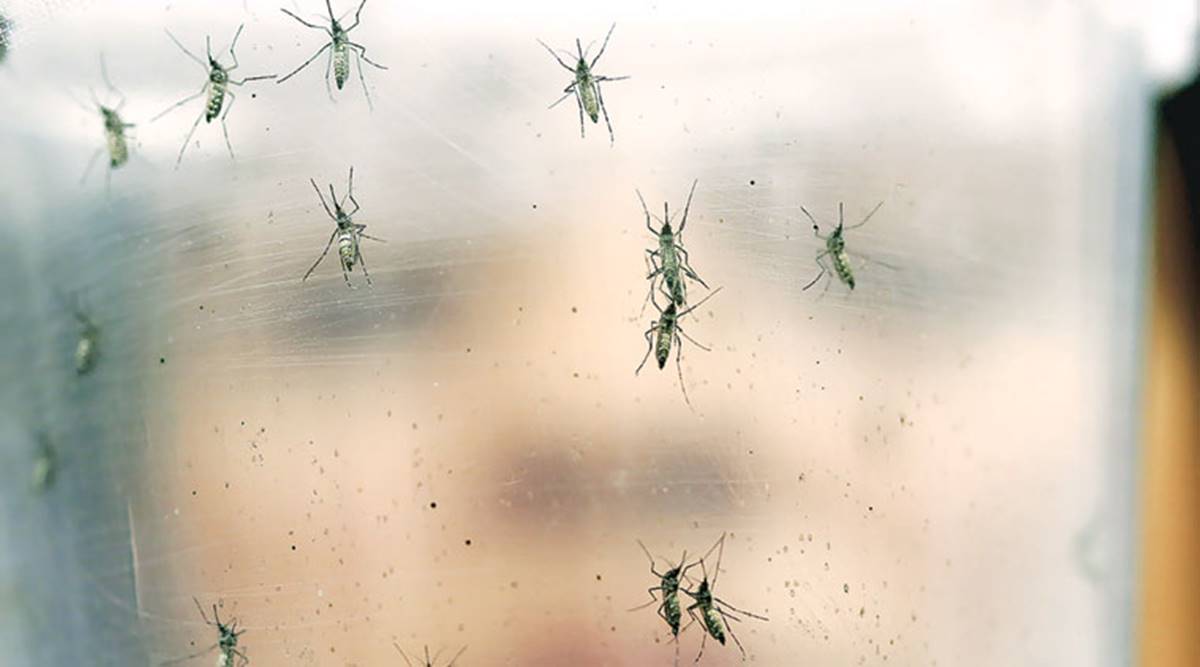 According to Ayush Prasad, chief executive officer (CEO), Pune Zilla Parishad, as part of the control strategy, symptomatic patients including women in need of antenatal care will be sent to fever clinics at sub centres and primary health centres. (File Photo)
According to Ayush Prasad, chief executive officer (CEO), Pune Zilla Parishad, as part of the control strategy, symptomatic patients including women in need of antenatal care will be sent to fever clinics at sub centres and primary health centres. (File Photo) A day after the first case of zika virus infection in the state was detected at Belsar village in Purandar tehsil of Pune district, a three-day house-to-house survey has been initiated in the village and surrounding five villages starting Sunday.
Data from the district health department shows that the village had also reported 35 cases of chikungunya apart from three cases of co-infection of dengue and chikungunya in June-July period.
On Sunday, a total of 13 survey teams visited 851 houses in Belsar and surrounding villages covering a population of 2,699 people. They found 31 homes (of which nine were from Belsar village) that had water containers or tanks with the presence of the aedes aegypti larvae. A total of 20 serum samples have been collected, including of five pregnant women, which will be sent to National Institute of Virology to rule out presence of zika, dengue or chikungunya.
In June and July, eight cases of dengue were identified in three villages in Purandar tehsil. Besdes, 40 cases of chikungunya were detected of which 35 were from Belsar. Of the six cases of co-infection of chikungunya and dengue, three each were detected in Belsar and Jejuri towards July-end.
Dr Ujjwala Jadhav, Purandar tehsil health officer, told The Indian Express that according to data, 24 pregnant women from Belsar village are registered at the Belsar Primary Health Centre. Zika virus infection in pregnant women is associated with a high risk of adverse effects on the foetus.
According to Ayush Prasad, chief executive officer (CEO), Pune Zilla Parishad, as part of the control strategy, symptomatic patients including women in need of antenatal care will be sent to fever clinics at sub centres and primary health centres.
“As part of our three-day survey, we will closely monitor if there are more pregnant women in the villages,” Dr Jadhav said. On Sunday, surveyors identified 18 pregnant women from Belsar and surrounding Kothale, Walunj, Niluj, Khanwadi and Paargaon villages.
Amar Mane, Purandar tehsil Block Development Officer, said the survey was conducted by the teams that include medical officers and auxiliary nursing midwives among others. They examined people who had fever-like symptoms and also checked whether water containers had the presence of aedes aegypti larvae.
District health authorities said they are also keeping a watch on groups of transporters who travel to Kerala to purchase pomegranate and tomatoes. Kerala has reported 61 cases of Zika infection so far. Samples are also being collected from transporters and other migrant labourers from Uttar Pradesh, authorities said.
Prasad said that the administration’s control strategy would include identifying areas with cases of dengue and chikungunya in the last five to ten years. For four weeks now, surveys would be initiated every week in these zones and a strict watch would be kept on symptomatic patients and pregnant women. Persons with travel history to Kerala, Tamil Nadu and Karnataka would be included in the screening. Gram panchayats have been instructed to cover puddles with mud and stones while guppy fish (used in dengue control) will be introduced at each surface water source, Prasad said.
1,186 case of dengue, 379 of chikungunya reported since January
Starting January, as many as 1,186 cases of dengue virus infection, including two deaths, and 379 cases of chikungunya have been reported from the state. Dr Pradeep Awate, State surveillance officer, said surveillance has been stepped up and each sample sent for dengue and chikungunya will also be tested for zika virus. According to Dr Mahendra Jagtap, state entomologist, an alert has been sounded across each district to step up surveillance for both vector-borne diseases and coronavirus disease.
- The Indian Express website has been rated GREEN for its credibility and trustworthiness by Newsguard, a global service that rates news sources for their journalistic standards.

